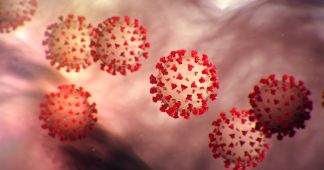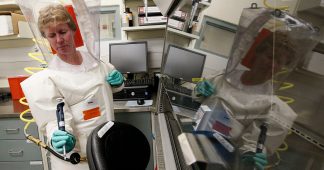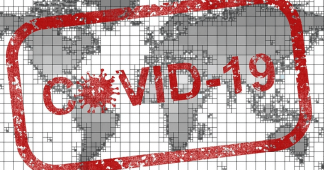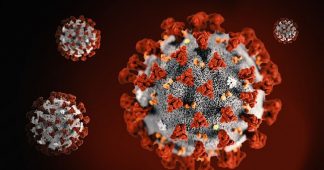China’s CDC head urges not to politicize coronavirus origins probe, reiterates efficiency of indigenous COVID-19 vaccines
Jul 27, 2021
Photo: China.org.cn
The head of the Chinese Center for Disease Control and Prevention (CDC) joined the chorus against politicizing the coronavirus origins probe, saying it is a scientific issue and no one should throw buckets at others.
With the next stage coronavirus probe roadmap still hanging in the air, Chinese epidemiologists urged a focus on US Fort Detrick. “The more they want to hide it, the deeper we should dig,” said one.
Meanwhile, an online petition by Chinese netizens demanding that the World Health Organization investigate Fort Detrick lab has gathered nearly 15 million signatures as of the press time.
Speaking at the conference, Gao Fu, the CDC head, gave the example of human coronavirus HKU1, which were discovered by a research team at Hong Kong University in 2004. It turned out that they already existed in a Brazilian scientist’s samples stored in his refrigerator as early as 1995, said Gao.
Gao stressed that the coronavirus origins probe is a scientific question and should not be politicized, suggesting the virus may have already existed long ago.
With the origins of the virus still shrouded in secrecy, mounting evidence shows that the virus has been circulating in the US before the outbreak in Wuhan last year. Many other scientists and analysts, including Herman Tiu Laurel, a columnist, proposed on Philippine media outlet Sovereign PH on Friday an online petition to be signed by Filipino netizens for the WHO to look into the US Army Medical Research Institute of Infectious Diseases at Fort Detrick.
The online petition launched on July 17demanding that the WHO investigate the Fort Detrick lab has garnered nearly 15 million signatures among Chinese netizens as of press time. Yet, neither the US government, nor WHO responded.
“The US must be afraid of exposing Fort Detrick to scrutiny, like what the WHO did in the Wuhan Institute of Virology [WIV],” Zeng Guang, a former chief epidemiologist of the Chinese Center for Disease Control and Prevention, told Global Times. He noted that the US opposes the Biological Weapons Convention because it is terrified about investigations into its biolabs. The more they want to hide it, the deeper we should dig,” said Zeng.
Lao Foreign Ministry issued a statement on Monday, saying that global cooperation in novel coronavirus origins-tracing work is a complex scientific issue, which must uphold the spirit of objectivity, transparency, inclusiveness and pure scientific research.
Nearly 60 countries have sent letters to the WHO, agreeing with the results of the first phase of origins-tracing research and opposing the attempt to politicize the study of the origins, Chinese State Councilor and Foreign Minister Wang Yi said on Sunday.
Li Haidong, a professor at the Institute of International Relations of the China Foreign Affairs University, told the Global Times that with many parts of the world overwhelmed by the COVID-19 surge, some countries, especially the US politicizing virus origins tracing, has seriously hobbled scientific research on this issue. He expected more countries still ravaged by the pandemic to stand up and vent their anger against the politicization of the probe.
Tedros Adhanom Ghebreyesus, WHO head, outlined a plan recently for a second investigation in China of the origins of coronavirus, including a proposal for “audits of relevant laboratories and research institutions operating in the area of the initial human cases identified in December 2019.” The proposal was rejected by Zeng Yixin, China’s vice minister of the National Health Commission on Thursday, saying it “disregards common sense and defies science.”
A joint team of China and WHO conducted an investigation in the coronavirus origins in Wuhan earlier this year, and watered down the lab leak theory in a March conference, saying it is “extremely unlikely.”
All countries have a responsibility to work together to uncover the origins of COVID-19, WHO spokesman Tarik Jasarevic said, adding that “This is not about politics, it’s not about a blame game.”
But epidemiologists noted that coming back to examine the country that the WHO has visited since the outbreak is strong evidence that the organization is being heavily pushed by politics.
Ghebreyesus’ shift in attitude suggests that he has given in to political pressure from a small number of member states, said a source close to the joint team, adding that this is politics leading science and significantly delays the next steps.
Many other epidemiologists also insisted the next stage investigation into coronavirus origins should be carried out in multiple countries, as there are signs that the virus may have surfaced in other countries earlier than the Wuhan outbreak.
These include a skin graft from November 2019 in Milan that tested positive for the virus, a wastewater study indicating the virus could have been circulating in Brazil that same month, and blood samples suggesting traces of infection in the US and France in late 2019.
A virologist with close connections to the WIV, who asked not to be named, told the Global Times that all signals around the pandemic should be subject to WHO scrutiny, as it is possible that there were some very mild contagious versions of the coronavirus in other parts of the world.
Published at www.globaltimes.cn











